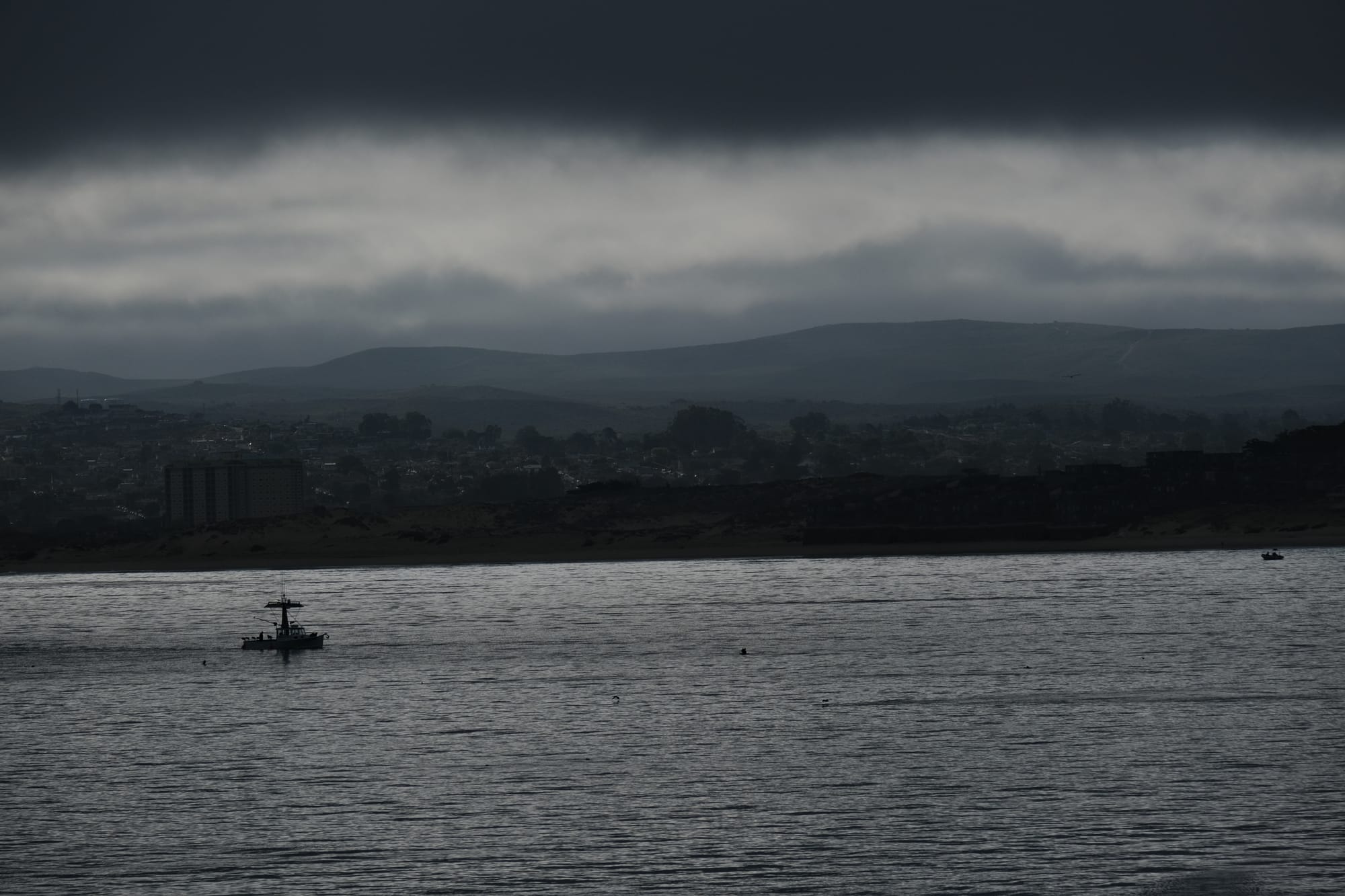Dawn Patrol 8.8.25


It was about 10 years ago, a little past 3:00 AM over the Pacific Ocean. Military sensors pick up a blip. After a few minutes of high blood pressure, they realized it was not World War, whatever it was an asteroid. It had passed through the gauntlet of the upper atmosphere, and once it hit the fresh air of Earth, it decided to explode and scatter itself across the South Pacific.
Actually, if we're being proper about this, it was a meteor. And after exploding and settling to the surface in a million pieces, many meteorites,
this sort of thing happens all the time. There's a lot of rocks out there, and occasionally one gets roped by our gravity and finally ends its journey through the cosmos by settling down to our planet. But this one was a little different because it was fast. They're all fast, but this one was a little faster than your average space rock.
The military, who is not really in the business of confirming things, confirmed that this rock was going very fast, faster than the ordinary. And things considered out of the ordinary happen all the time. We learned to filter them out so that we can actually get something done in any given day. But there is always that one person whose filter is a little bit broken, and that man this time was Harvard Professor Avi Loeb.
This particular deviation from the ordinary couldn't be ignored for him.
An unusually fast meteor, like anything could mean a lot of things. But one of the things it could mean is that this rock is not from around these parts. Space rocks can come from billions of miles away, but all of them so far have come from our particular stellar neighborhood. We've never had a space rock visitor from an address outside our solar system.
What if for the first time in recorded history, we had an interstellar visitor to our planet?
The amazing thing about being a scientist is that you can have a thought like that. Write a paper. And a proposal or two, and that somehow gets you funding to drag a gigantic magnet across the floor of the South Pacific, which has strong supervi vibes, but apparently it's just science.
And when Avi's big magnet was pulled up from the deep, it pulled up a hole of tiny metallic spheres. Analysis according to Loeb revealed a unique mix of elements. A fingerprint. A fingerprint on finger pointing away past the asteroid belt, past the gas giants, past the ER belt, past the ORT cloud, the great beyond.
At first glance, you think, sure, why not? It's a great big universe. I'm sure it will dump its garbage on us from time to time, but the thing is, the universe is vast and we observe it all the time through orbital and terrestrial spy glasses. But the only physical evidence we have of that great wide universe comes from our particular neighborhood in and around our particular star.
We can see stars, billions of light years away, but those distant visions are our only proof. Every rock that falls to earth and explodes came from somewhere nearby within our particular heliosphere. Everything else is just an amazing light show. Until we finally get that interstellar visitor, the stars we observe will still feel like kind of a theory.
Just pinholes in the curtain of night.
That desperation for physical evidence of the wider universe causes people to see things where there aren't. Because as soon as Dr. Loeb did his supervi magnet thing and insisted that he had found the good stuff, the skeptics arrived and announced that this traveler that came from out of the sky and exploded was a local traveler, not the interstellar visitor.
We were hoping. Dr. Loeb clapped back at their clap back, and now one side says this, and the other side says that, and we are back to waiting for further evidence. Einstein's vexing rule to need extraordinary evidence for extraordinary claims.
Meanwhile, as Dr. Loeb does battle with the skeptics, the Osiris wreck space probe has decided rather than sit and wait patiently for rocks to fall on us, that it would go right to the source that traveled over 87 million kilometers away and rendezvoused with the asteroid benu, it landed on the 490 meter rock, scooped up several grams of its surface.
And sent the sample sailing back to earth. When a rock crashes to Earth, it changes the evidence says of its origins can be stripped away, but heat. We wanted the Undistilled Space Rock experience and now that we've gotten this sample returned to us and Pride opened the capsule and studied its contents.
Turns out it was a good thing we did that. Because what these few grams of Benu have told us is that once upon a time, in the chaotic days of our early solar system, there was a planet, a planet, not unlike ours. It had water, it had chemicals. No life to speak of probably, but it had chemicals and chemicals lead to biology and biology leads to us,
but it was too chaotic back then. Nobody had really settled into their orbits. And this mysterious, watery planet was destroyed by collision after collision, and one of the bits that broke off during that conflagration is now a 490 meter rock. Named Benu
messages from the sky.
We've always waited for them for thousands of years. All around the world, you can find a gigantic arrangements of stones. All perfectly aligned with the stars. We used them to better understand what the sky was telling us. We would watch and wait, we turned it into mysticism. With astrology, we would say that our personality is decided by the stars that we are born under with a lack of anything else to look at, like our watch, uh, or a book or an illuminated screen.
The very first nighttime viewing was the sky. It's how we knew what was going on. And also wondered what was going on,
and some of that still remains to this day. We look up and we wait for something to fall out of the sky and explode over the Pacific, hoping it has an answer to our question. We've even figured out how to cut to the chase and go up into the sky and shake those answers loose from orbit.
There's something kind of nice about that. I think despite the fancy clothes of this modern age, not much has changed since the days of huge erected stones and looking up, sure, we've figured out ways to throw things back at the sky now, but the answers we bring back with Osiris and others like it, they just bring more questions.
The shores of ignorance always expanding. The more we learn, the more there is to know,
and yet somehow that's never an argument for more ignorance in the world. That's never an argument to stop looking up at the sky, waiting for an exploding rock over the Pacific. We know the questions like the space rocks will never stop coming. We marvel at new questions the same way we marvel at explosions in the sky.
A new question arises and we think, I wonder what all that means. A rock explodes in the sky and we think, I wonder what all that means.
Maybe all it means is to just keep looking up just like we always have.
Maybe that's always been enough.